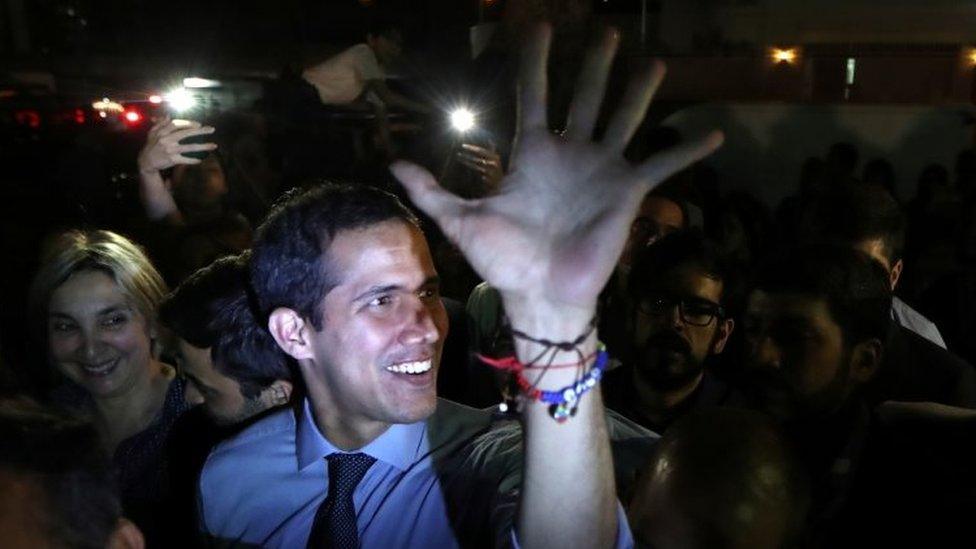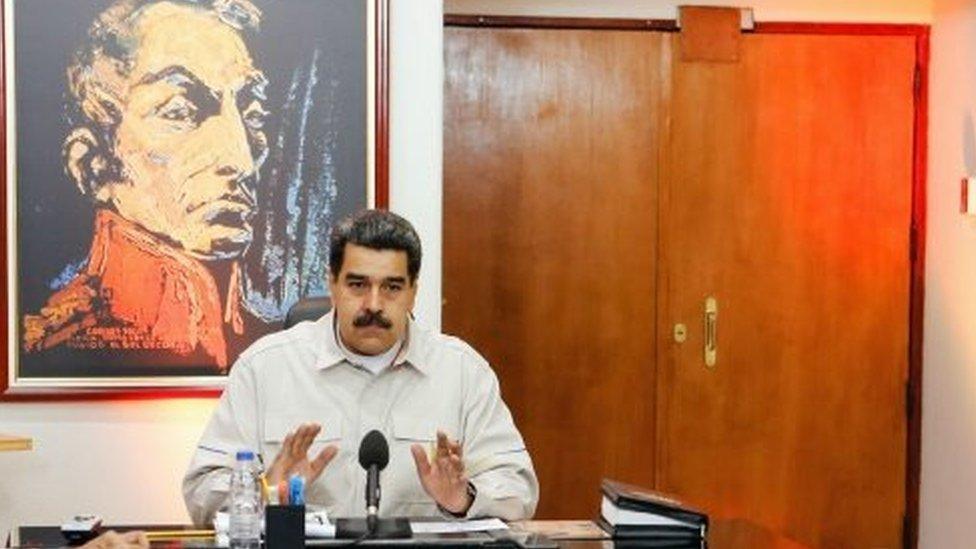Venezuela crisis: Guaidó's immunity lifted by Maduro loyalists
- Published

Mr Guaidó declared himself Venezuela's interim president in January
Venezuela's Constituent Assembly has stripped opposition leader Juan Guaidó of his parliamentary immunity, a move that could lead to his arrest.
The pro-government body acted on a request from the Supreme Court. Mr Guaidó says the move is illegitimate.
He declared himself interim leader in January, gaining the support of more than 50 countries including the US.
But President Nicolás Maduro has major allies too and retains the crucial backing of the military.
Amid a power struggle between the two, Venezuela has seen growing street protests over a lack of water and electricity.
The authorities have said they will shorten the working day and keep schools closed due to power cuts.
On Monday, the Electricity Minister, Luis Motta, was replaced with an electrical engineer.
The government has claimed the blackouts are the result of sabotage to force Mr Maduro from office.
Why did the assembly act?
The chamber unanimously ratified the request from the Supreme Court - a decision that was met by loud applause by deputies.
The assembly is packed with Maduro loyalists in what critics say is an attempt to bypass the opposition-controlled National Assembly.
The Supreme Court earlier said Mr Guaidó should be prosecuted for violating a travel ban when he toured several Latin American countries a few weeks ago.
The court has already banned him from holding office for a period of 15 years and arrested his right-hand man on terrorism charges.

President Maduro says Venezuela's military chiefs support him
Responding to the announcement, Mr Guaidó, said there would be "no turning back", despite warning he was at risk of being abducted by government agents.
The US have repeatedly warned the Maduro government that arresting or harming Mr Guaidó would have "serious consequences".
What's the background?
Mr Maduro narrowly won a presidential election in 2013 after the death of his mentor, President Hugo Chávez.
He was elected to a second term in 2018 in an election seen as flawed by international observers.
Venezuela has experienced economic collapse - inflation was 800,000% last year. Three million people have left.
Mr Guaidó has accused President Maduro of being unfit for office, and won the support of many in Venezuela as well as the US president and leaders of a number of European countries.
The Maduro government is becoming increasingly isolated but Russia has expanded co-operation with Caracas - increasing arms sales and extending credit.